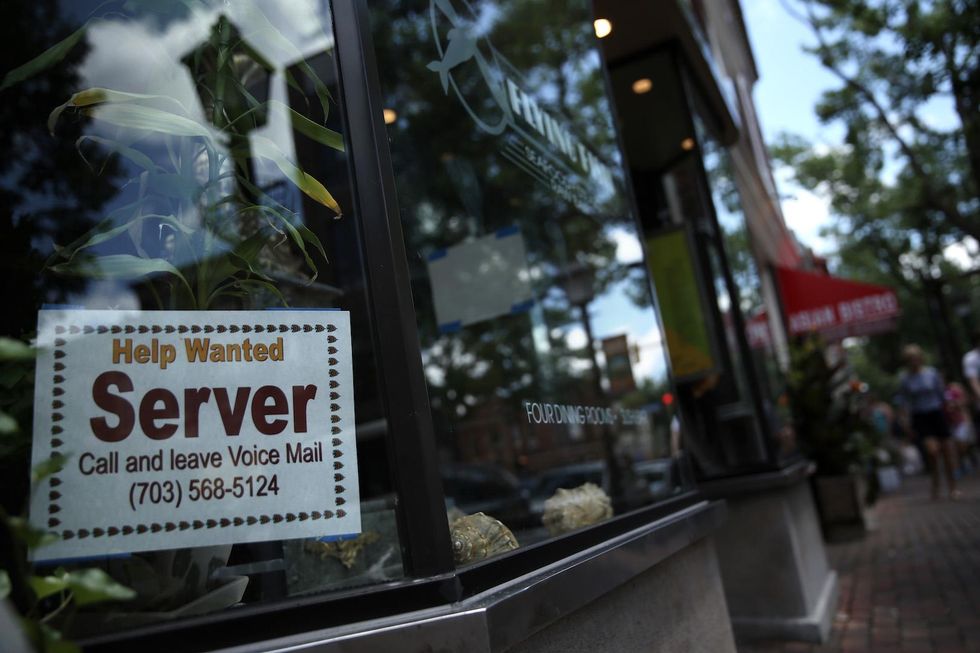
Some restaurants are struggling to hire enough workers, partially due to the low unemployment rate. In Pittsburgh, the restaurant industry is dealing with a combination of factors that lead to a shortage of workers. (Alex Wong/Getty Images)

In recent months, unemployment rates have continued to decline to their lowest in nearly two decades. However, that good news has created a problem for some restaurant owners, who now struggle to find workers to hire, KDKA-TV reported.
With fewer people looking for jobs, and more restaurants popping up all the time, restaurant owners like Michael Kotyk in Pittsburgh find themselves short-staffed.
"Typically, this time of year, when we come into our busy season, we would have about 25 kitchen staff, and right now, we have about 10," Kotyk, owner of Over the Bar Bicycle Cafe, told KDKA.
In Pittsburgh, the restaurant industry is dealing with a combination of factors that lead to a shortage of workers.
First, the area has more restaurants than it used to, increasing the competition for employees. Additionally, one of the local culinary schools closed several years ago, reducing the number of local graduates. Lastly, an unemployment rate nationally of 3.9 percent means the market for potential hires is smaller than it has been in years.
Kotyk told KDKA his restaurant has had to raise wages by a third to attract workers, but he can't afford to go much higher and may soon have to cut back his business hours to keep the restaurant profitable.
"[We've had to] lure people to come in here or have sign-on bonuses, and we also started offering health care last year," Kotyk said.
According to the Seattle Times, restaurant owners have also grown wary of relying on cheap immigrant labor. The Trump administration has gotten stricter on illegal immigration and unauthorized workers, leading some establishments to look elsewhere for cheap labor, such as hiring former prisoners as kitchen assistants.
With tight margins and little room to raise wages or offer more benefits, the consumers are sometimes forced to make up the difference.
"If I offer too much I have to raise prices because we still have a bottom line we have to meet," Kotyk said.